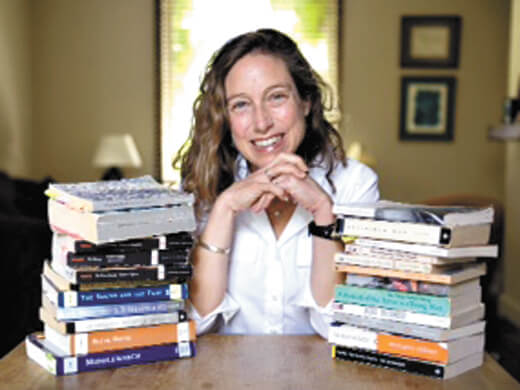September 16, 2016
Toby Brothers is director of the London Literary Salon.
 As I re-read Midnight’s Children in preparation for our work together, I am thinking anew about how literature approaches the contradictions of contemporary formations of identity. What do I mean by that? Significant literature (by which I mean literature that requires time patience and contemplation to move through the layers of meaning contained) from Homer forward has always in some way queried how we come to know who we are and what forces shape this awareness. Earlier times could rest more solidly on identities rooted in place, nationality or ethnicity that then were shaped by the individual’s interaction with their immediate and local world.
As I re-read Midnight’s Children in preparation for our work together, I am thinking anew about how literature approaches the contradictions of contemporary formations of identity. What do I mean by that? Significant literature (by which I mean literature that requires time patience and contemplation to move through the layers of meaning contained) from Homer forward has always in some way queried how we come to know who we are and what forces shape this awareness. Earlier times could rest more solidly on identities rooted in place, nationality or ethnicity that then were shaped by the individual’s interaction with their immediate and local world.
But we live in more transient (location and cultural) times. Many query the relevance of cultural identity as a fixed notion; as a single check in a census box when individual composition is much more complex—and therefore interesting. Salman Rushdie is certainly engaging these issues in Midnight’s Children. It is tempting to consider ‘multi-cultural’ in its best and most liberal possibilities: an expansion of perspectives, traditions, inheritance and influences that will vitalize the society that supports it. But as Salman Rushdie, Jamaica Kincaid, Derek Wolcott, Doris Lessing, Chinua Achebe, Jean Rhys, Neruda, Ondaatje, Nabakov- in short any writer whose perspective is informed by cultural existence outside their own source culture- shows, this multi-cultural designation is unwieldy and ambivalent. Ambivalent not in a passive, intermediary stance but in a (sometimes violent) negotiation between a positive, inclusive and generous proposal on one hand and a terrifying loss of identity on the other- with many manifestations of prejudice and chaos in-between.
In the essay titled Imaginary Homelands, Salman Rushdie commented on writing about India from England and the potential inherent in a more complex idea of home; this is a related but not exact comparison to the consideration of multi-cultural perspective- but it may help clarify what I am addressing here.
Our study of Midnight’s Children will open up our understanding of what we call HOME and the challenges to this aspect of self-identity when the context of home—cultural, political, social—becomes disrupted by over-powering forces. We are in a historical moment of reconsideration of home as a single definition. Migration, exiles, multi-culturalism, bi-racial identities, cultural and ethnic displacement, international movement, international media—all contribute to a hybridity of reference—both personal and political –that is complex and often creates fear. I hope through our study of this literature that instead of fear, we discover potentiality as well as recognizing the dangers and fragmentation that occurs when cultures blend, clash, struggle for power or overcome one another.